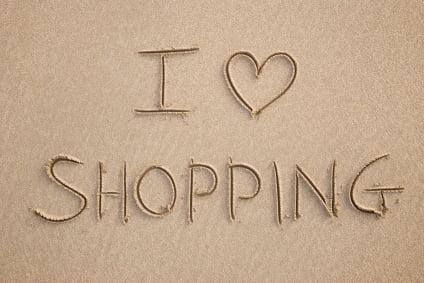Admit it: are you a shopaholic?
Many of us go on shopping binges, or we find ourselves unable to resist certain things: like yet another purse or that oh-so-cute pair of shoes.
It’s OK to shop. But when the shopping becomes excessive, or it drives you into debt, then that’s a problem.
Here are some quick tips to help you – or any friend you know who’s a shopaholic.
If we’re honest with ourselves, many of us will admit that we often shop for reasons that have nothing to do with our needs. We shop as a form of retail therapy. We shop to buy things that impress others. Or sometimes we shop just because we think “I deserve it.”
Again, the important point is to recognize when such emotional spending puts you in the red. What good is it to “feel like a million bucks” on the outside, or to have the external appearance of success – but on the inside you’re really a wreck about your finances?
To put an end to such retail therapy, before buying anything ask yourself this question: am I going to regret this purchase financially or feel emotionally guilty about it later?
If the answer is yes, be willing to put it down. This will keep you emotionally and financially grounded.
You should also avoid shopping as a way to feel better.
Especially among women, too many of us shop when we’re angry, depressed, or frustrated about something. But some of us splurge even when we’re happy.
Whatever the case, going on an emotional spending binge is just as dangerous as going on a drinking binge: You may get a short-term sense of euphoria, but any emotional boost you experience will quickly give way to renewed feelings of guilt and despair. Plus, you’ll have the ultimate shopper’s hangover: credit card bills that take months to pay off.
To reduce the chances of overspending, make it a practice to leave your credit cards at home more often than not. Having credit cards, charge cards and retail department store cards in your wallet or purse makes it easy to make spur-of-the-moment shopping trips. You’ll think more about your spending practices if you have to part with your hard-earned dollars, versus just whipping out a credit card. Plus, people tend to spend more when they use plastic, instead of cash.
Finally, use the “24-hour Rule.”
So when you see something expensive that you think you “must” have, be willing to wait for it – just for one day. Tell yourself that if you still really want the item, you can always go back and get it the next day. But in many cases, that 24-hour cooling off period will be just the break you need to not indulge.
Use these easy tips and you’ll soon get a handle on your shopaholic ways.










